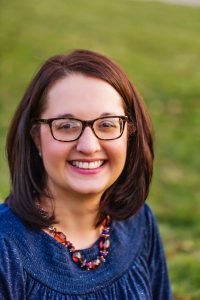 We recognized Temple University for offering one of the 32 Best Master’s in Education Programs with an ABA Emphasis, adding them to our list of top recommendations for teachers.
We recognized Temple University for offering one of the 32 Best Master’s in Education Programs with an ABA Emphasis, adding them to our list of top recommendations for teachers.
We were excited to hear from Amanda Fisher, Ph.D., BCBA-D, a faculty member at Temple University who took the time to answer a few questions about how the school works to create a great student experience that helps prepare graduates for a career in applied behavior analysis.
Temple University Programs:
- MSED in ABA and Graduate Certificate in ABA

Professor/Faculty Name: Amanda Fisher, Ph.D., BCBA-D
Tell us about the types of students you see come through your program. Are you seeing more non-traditional students and career changers coming from other fields?
Amanda: Some students are entering graduate school directly from their undergraduate work and some are professionals coming back to obtain their BCBA credential after working in the field. We also see professionals from other fields join our Graduate Certificate Program to obtain the coursework for the BCBA credential. We have students from the Philadelphia area, across the country, and international students. This diverse student mix has been a longstanding feature of our program.
What areas of practice are you seeing graduates going into? Do they tend to find jobs in the local school districts or more often join private practices?
Amanda: We consistently see students from our program continue on to Ph.D. programs. Many students are already working in the field and earn promotions upon graduation. We have alumni working in local and surrounding school districts, but many work in local agencies and health care centers as well. We also have alumni who are faculty in universities across the country, running private schools and agencies, working in research positions, and consulting across the nation.
What are some of the things you love most about the ABA program at your university – the kind of things you’d like future students to know about as they consider their options?
Amanda: This past spring (2019) we celebrated 50 years of behavior analysis at Temple University. Our program has a long reputation in behavior analysis, and with that comes unparalleled opportunities for students around the world.. We have talented faculty conducting impactful research, publishing books and articles, consulting in the community and holding leadership roles in organizations like ABAI. Our faculty are committed to our students and our program is designed to teach students about the science, not just a set of interventions, and expose students to the wide array of applications of behavior analysis. I especially love the wide variety of practicum sites where students get exposure to a variety of populations and target behaviors and our thesis where students get experience with research and empirically evaluating interventions.
What do you feel are the most pressing issues in ABA today, and how does the program at your school prepare graduates to address these issues?
Amanda: I think one pressing issue right now is ensuring the quality of services provided in the name of ABA. With current trends and issues such as insurance and licensure acts, changes to certification requirements, increasing demand for ABA practitioners, rising awareness of our field, we provide the high quality training necessary to meet these challenges. A second pressing issue is ensuring accurate and positive dissemination of our science. Our research-focused interdisciplinary program allows students to experience and learn the field’s breadth and depth.
Can students apply any credits earned in the Graduate Certificate in ABA program toward the MSEd in Applied Behavior Analysis degree?
Amanda: Should a student complete our graduate certificate in ABA with acceptable grades and performance, and apply and be accepted into our MSED in ABA program, all the certificate courses can be transferred (assuming the courses required are the same at the time of completion and application).
Can you offer a description of the interdisciplinary nature of the MSEd. in ABA program?
Amanda: Our program has faculty from a variety of programs and expertise (e.g., special education, applied behavior analysis, developmental disabilities, experimental analysis of behavior, organizational behavior management). We advise masters theses in a wider variety of topic areas (e.g., decreasing aggression in seals, increasing pedestrian safety at crosswalks, assessment and treatment of challenging behavior associated with autism, turnover of direct care staff). Also, students experience the application of our science in at least two different settings outside of work in a variety of approved practicum sites with a variety of populations (e.g., autism, traumatic brain injury, employees) and target behaviors (e.g., problem behavior, staff performance, feeding issues).
Please feel free to add anything else you would like potential students to know about your program; things that make your school stand out in the field that are worth considering before choosing a program.
Our ABA programs are designed to give students a strong foundation in the science of behavior analysis and its wide array of applications. Our small faculty to student ratio enhance our evidence-based instructional strategies and our reputation is internationally recognized. Our practical experience and masters thesis are unique and prepare the students for effective practice as well as future graduate school endeavors.
Check out our full interview series here to see what other professors and faculty are saying about their ABA programs.





